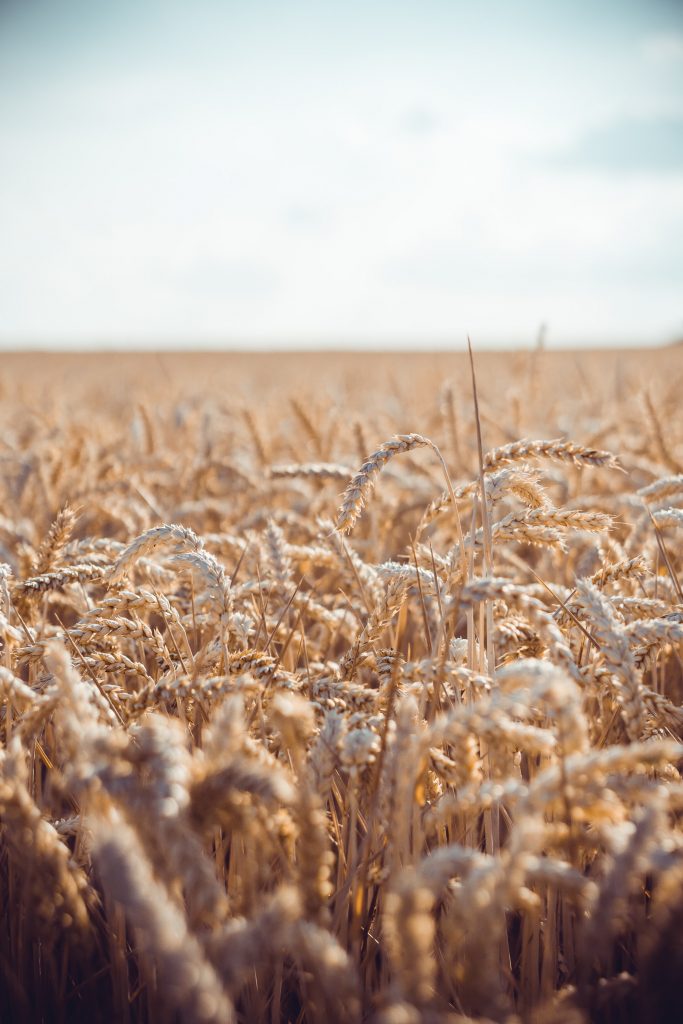
St. Swithun’s day if thou dost rain
For forty days it will remain
St. Swithun’s day if thou be fair
For forty days ’twill rain nae mare
It’s not just important for the farmer but, even more, for the corn factor, to get the weather right for harvest. So, this bit of weather lore, repeated every year in the media could be important. But the BBC tells us that, since records have been kept (1841) there has been no period of 40 days rain after St Swithuns Day. However, there is some suggestion of a period of stable weather from mid july to the end of August. But, generally, a lot of old nonsense.
St. Swithun was Bishop of Winchester from his consecration on 30 October 852 until his death on 2 July. And very little else is known about him. However, he is the patron Saint of Winchester, and has powers against Drought.
Weather Forecasting and Thomas Hardy
The price of corn is very dependent upon the weather. Michael Henchard in Thomas Hardy’s 1886 novel ‘The Mayor of Casterbridge’ has formed a terrible rivalry with his erstwhile friend Donald Fafrae. He is determined to outdo him in the Casterbridge Cornmarket. He has a hunch about the weather and the price of corn, but needs reassurances. So despite his doubts about the efficacy of prophecy he goes to see ‘a man of curious repute as a forecaster or weather-prophet.’ Henchard is shrouded to protect his identify. He will not stay to take hospitality from the prophet, nor cross the threshold. He masks his face with a handkerchief, as if suffering from a toothache.
However, the prophet knows this strange man is the former Mayor of Casterbridge, much to Henchard’s surprise. Henchard quizzes him. ‘can ye charm away warts?’ ‘Cure the evil?’ ‘Forecast the weather?’ Replying in the affirmative the cunning man takes Henchard’s crown piece and forecasts:
“By the sun, moon, and stars, by the clouds, the winds, the trees, and grass, the candle-flame and swallows, the smell of the herbs; likewise by the cats eyes, the ravens, the leeches, the spiders, and the dungmixen, the last fortnight in August will be – rain and tempest.’ ‘Twill be more like living in Revelations this autumn that in England.’
Henchard buys up grain at the current high price. But is ruined by the fine weather that sets in for an excellent harvest which sends corn prices tumbling.
The Withered Arm
Local folklore was at the heart of many of Hardy’s stories. Perhaps the most dramatic is the ‘Withered Arm’. Gertrude has a withered arm wished upon her by the former lover of her husband, with whom she has an illegitimate boy.
Years pass, and she is still determined to cure her arm. She visits a Casterbridge Cunning Man. He tells her the only cure is to touch the neck of a recently hanged man. So she goes to Casterbridge on a Hanging Day. She makes arrangements with the hangman. Then she touches the neck of the hanged man. There follows an immediate cure. She cannot resist looking at the victim. A young man she recognises as the illegitimate son of her husband.
I first read these stories one after another at a time I was going through a painful period in my life. I remember throwing the ‘Withered Arm’ at the wall shouting ‘Oh Thomas Hardy’ you miserable man.’ It took me twenty years to come back to him, to appreciate his amazing descriptions of life in rural Wessex. The cast of characters struggling to make a place for themselves in a world that was changing beyond all recognition.
For more about Thomas Hardy search the Almanac of the Past for Thomas Hardy, or look at the Skimmity Ride.
On this day
1381 John Ball executed in St Alabans
First Published in 2022, revised July 2024, 2025

Your stories make my day – wish I was there (am in the US) – am looking forward to more virtual walks
Thank you, Michele! Virtual tours in the dark of winter I think….
Great XIXth century novelists!
An open book about life in the Past…
Flaubert, Zola and Maupassant are my French favourite ones…
Thanks for sharing Hardy!
Retirement plan is to read all those french and russian 19th Century authors